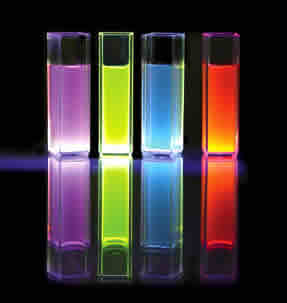The kinetics of base-catalyzed hydrolysis of 7-dimethylamino-4-methyl-2H-chromen-2-one (DMAC) and 7-diethylamino-4-methyl-2H-chromen-2-one (DEAC) in binary water-methanol and water-acetone mixtures were studied in the temperature range from 288 to 313 K. The activation and thermodynamic parameters of these reactions were evaluated and discussed. The change in the activation energy in going from water to aqueous methanol and aqueous acetone was estimated from the kinetic data. Base-catalyzed hydrolysis of DMAC) and DEAC in aqueous methanol and aqueous acetone follows the first-order kinetic law with respect to hydroxide ion, k obs= k 2[OH]. The hydrolysis rate constants of DMAC and DEAC decrease as the fraction of methanol or acetone in the binary mixture rises, which is due to destabilization of OH− ion. The high negative entropies of activation support the proposed mechanism involving formation of an intermediate complex and reflect rigidity and stability of the latter. Opening of the pyran ring in the intermediate complex is the rate-determining step.


